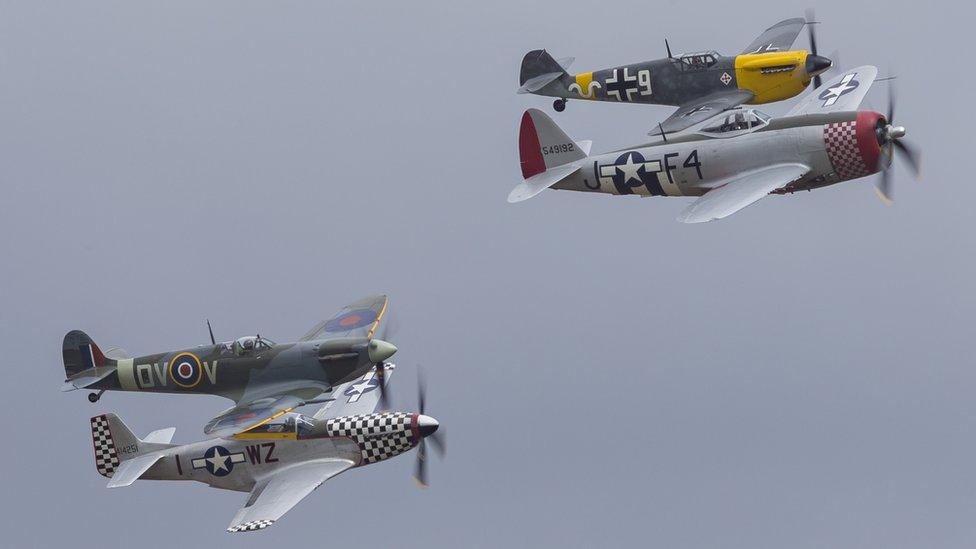Duxford WW2 plane crash landing due to 'lack of experience'
- Published
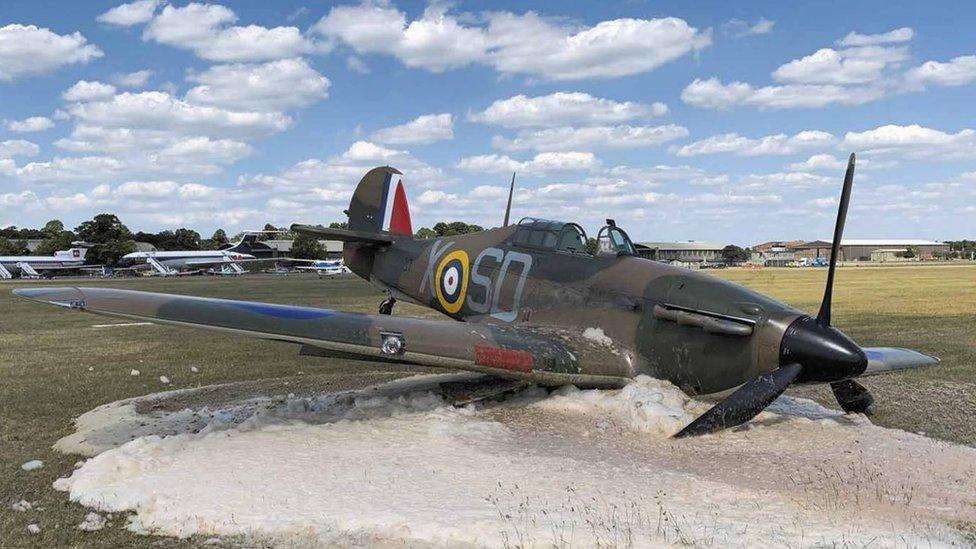
The Hawker Hurricane's landing gear collapsed at the airfield
A pilot's lack of recent experience led to the crash landing of a vintage World War Two plane, a report found.
The Hawker Hurricane crashed at Duxford airfield in Cambridgeshire on 1 June.
A crosswind caused the plane to make an "uncommanded right turn" which led the landing gear to collapse.
The Air Accidents Investigation Branch (AAIB) said the operator of the Battle of Britain aircraft would now use more experienced pilots to fly the plane in similar crosswinds.
The report, external said the Hurricane was returning from a 20-minute engine maintenance flight when it was due to land on the grass runway at the airfield.
The pilot attempted to angle the plane to deal with a crosswind from the right, but after touching down the plane bounced and turned to the right.

Hawker Hurricane
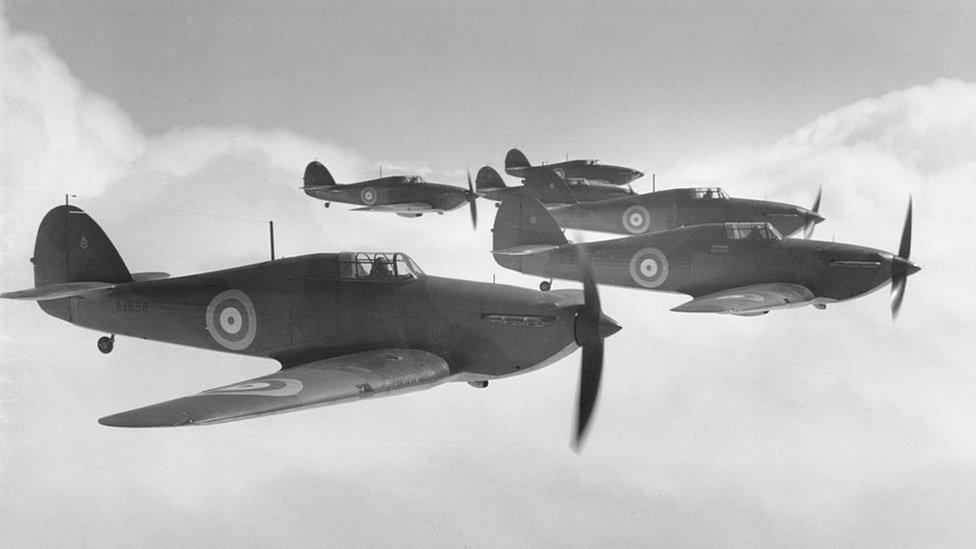
Designed by Sir Sydney Camm in the 1935 and entered service in late 1937
The first Royal Air Force fighter capable of exceeding 300mph (480 km/h) in level flight
In the Battle of Britain in 1940 the Hurricane shot down more aircraft than all other aircraft combined
Hurricanes were exported to the Soviet Union and in small numbers to Belgium, Yugoslavia, Romania, and Turkey
More than 14,000 planes were manufactured before production was halted in 1944
Source: Britannica.com

Investigators said the pilot estimated the crosswind was 10-15 knots (11-17 mph).
The plane, designed in the 1930s, turned further to right and then the three-wheel landing gear collapsed at what the pilot estimated was 20mph.
Although there was no fire, Duxford's firefighting service applied a fire-suppressing agent as a precaution.
The 60-year-old pilot was not injured.
The AAIB said the pilot had "just over eight hours' flying experience in the Hurricane" and had not flown it for several weeks.
According to the report, the pilot "considered that his lack of relevant currency may have reduced his ability" to control the landing.
It said the "hard, dry runway surface" may have also been a contributory factor in the crash.
The plane's operator said that anyone with "less than five hours' experience on equivalent types will be limited to a maximum five knot crosswind component from the right".
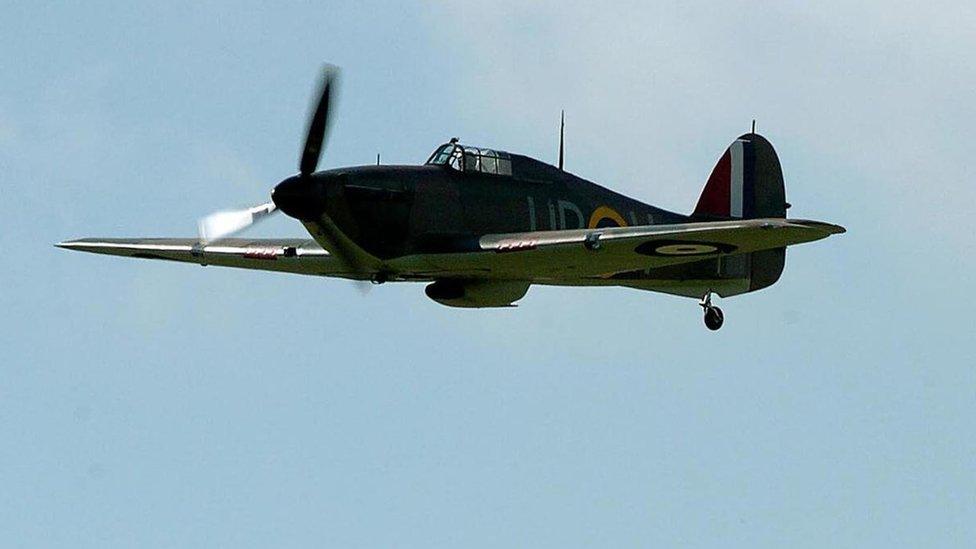
A Hawker Hurricane plane flying at a display at Duxford in 2005

Find BBC News: East of England on Facebook, external, Instagram, external and Twitter, external. If you have a story suggestion email eastofenglandnews@bbc.co.uk, external
- Published4 August 2020
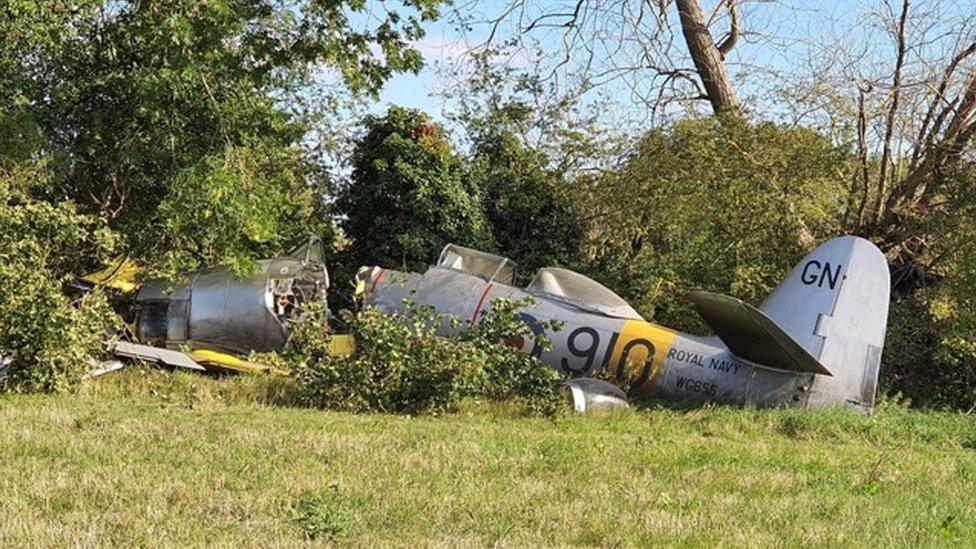
- Published25 August 2020
